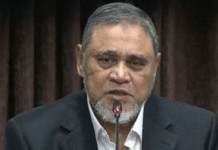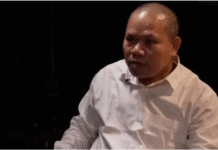Driver Abdul Malek’s name came to the fore during investigations into the irregularities of the health sector recently. He came under the radar in March last year. The total amount of Malek and his wife’s assets is yet to be discovered by the law enforcers. So far, however, seven plots of land and two seven-storey houses have been detected. Earlier, another health worker named Afzal was also arrested for corruption.
No matter how successful the functionaries of the government claim that the health sector may be, corruption and anarchy are rampant. Abdul Malek, a driver who joined the service in 1982, is just one example. According to media reports, there are three levels of syndicates in the health sector- high, medium and low. Those arrested now, including Malek, are low-level syndicate members.
There are others who are of the mid-level syndicates who are facing charges. However, members of the upper level syndicate always remain out of reach. There is no exception this time too.
When a driver working in the health sector can earn this much of wealth, it is not difficult to estimate how many millions has been embezzled by the big fish in this sector. A large part of the corruption in the health sector occurs through contracts, transfers and postings. Transfers involve high-ranking officials in the health sector and their staff. No one from outside can engage in such misdeeds. But the nexus of corrupt quarters is evident in deals like that with various contractors, Regent Hospital and so on.
Almost all work of the health department was taken over by some certain particular known contractors. According to the media, the syndicate has looted around around Tk 25 billion in the last five years with the help of a number of health services officials.
For a driver like Malek, it is only possible to mediate corruption. Recruitment or promotion is done high up. It is easy to guess the level of corruption at that level.
Muhammad Dilawar Bakht, secretary of the Anti-Corruption Commission (ACC), said that in 2019, officials of the health department were accused of amassing illegal wealth. The ACC is investigating 45 such officials of the health services who acquired huge amount of illegal assets through corruption, tender bidding, transfers and various other means. Former director general of the health directorate Abul Kalam Azad, who signed the contract, has been granted immunity despite a case being filed against five people, including the former director for the contract with the Regent Hospital, owned by Shahed Karim, the mastermind of the COVID-19 test scam. The ACC claimed that no evidence was found against him. The ACC also made such an argument in the case of Basic Bank scam. But everyone knows who was responsible for embezzling millions from the Basic Bank.
In 2014, a Transparency International Bangladesh (TIB) survey revealed information on bribery in recruitment, transfer, posting and promotion in the health sector. The amount varied from Tk 10,000 to Tk 1 million. Evidence of corruption was also found in the approval of private hospitals and diagnostic centers. When an organisation like the media or TIB alleges corruption in a government institution or department, the ruling party simply denies it and does not take any action. Had the TIB survey been taken into account, the corruption in the health sector could have been stopped.
The drive that has now begun against people like Malek will not change the situation unless the main culprits behind the scene are caught. For a driver like Malek, it is only possible to mediate corruption. Recruitment or promotion is done high up. It is easy to guess the level of corruption at that level.









